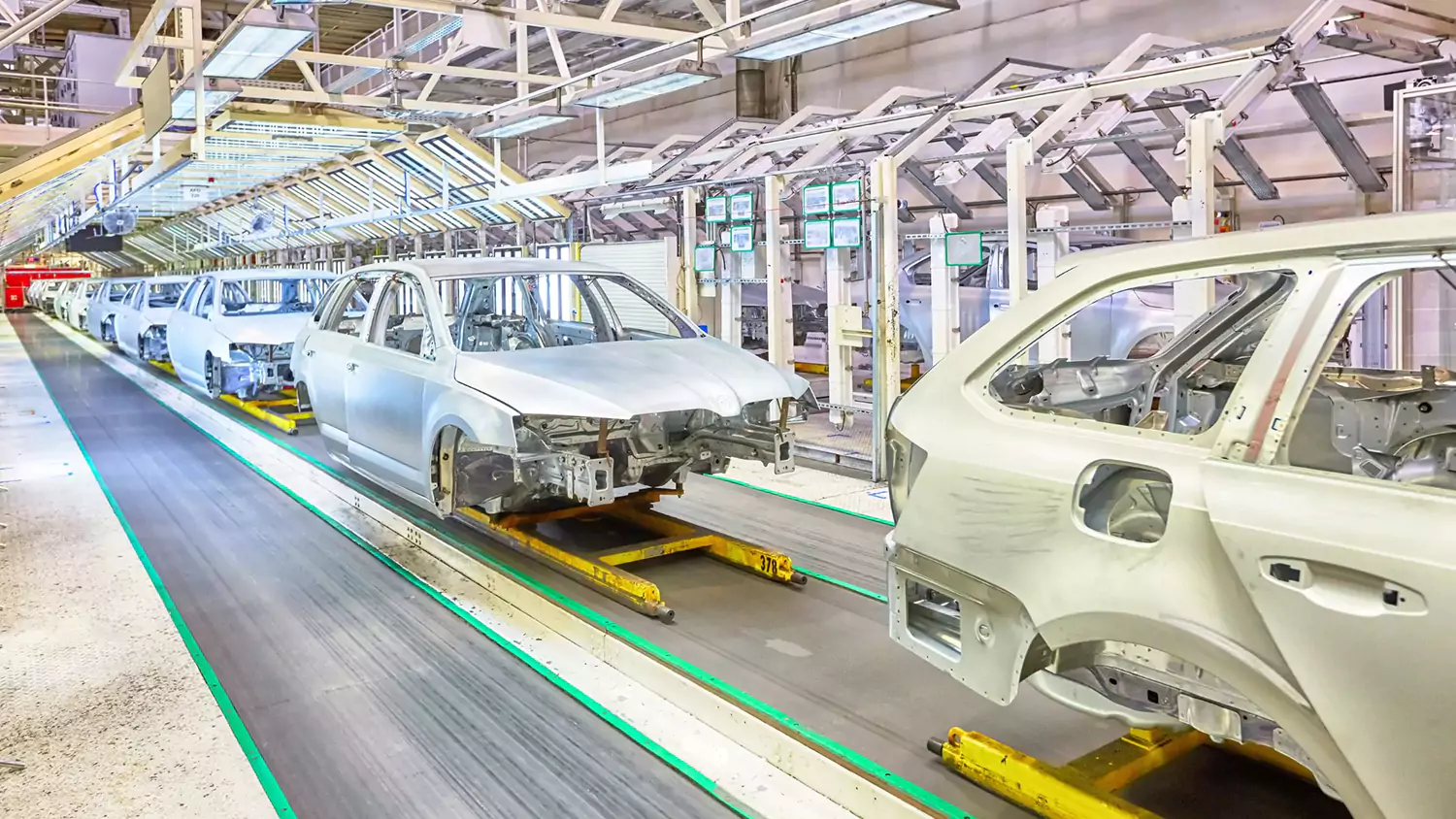2025 Tariffs Hit Auto Makers

Authored by: Glen Erdman — Director, EA | Date Published: April 3, 2025
At MBE CPAs, we understand the complexities manufacturers and business owners face today. With the recent implementation of President Donald Trump’s 25% tariffs on imported vehicles and parts, effective April 2, 2025, the automotive industry is undergoing a significant transformation. As a trusted accounting partner serving the manufacturing industry, we’re here to explain how these tariffs impact both manufacturers and individuals purchasing vehicles for business use, and how we can assist you in adapting to these changes.
Featured Topics:
The Tariff Reality and New Costs
Announced as part of Trump’s “Liberation Day” economic strategy, the 25% tariff applies to all foreign-made automobiles and parts, with additional duties on automotive components set to begin May 3, 2025. This policy seeks to strengthen U.S. manufacturing by promoting domestic production. However, the immediate consequence is evident: increased costs throughout the supply chain, affecting everyone from global automakers to small business owners who rely on company vehicles.
For manufacturers, the tariffs strike directly at profitability. Companies like Volkswagen, as reported by Reuters, are already planning to pass some of these costs onto consumers through an “import fee” on tariff-affected cars. Automakers with supply chains dependent on imports are adjusting quickly, with some halting production to reevaluate pricing and strategies. This ripple effect extends beyond the factory, reaching businesses and individuals who depend on these vehicles.
Manufacturers Face Rising Costs and Strategic Decisions

For manufacturers, whether you’re an automaker or a supplier, the tariffs bring immediate financial challenges. Imported parts, once a cost-effective option, now come with a steep surcharge. Yahoo Finance reports that this 25% levy could increase production costs by thousands of dollars per vehicle, compressing profit margins already pressured by global competition and rising material prices. Some companies may absorb these costs to remain competitive, but many, like Volkswagen, are choosing to pass them on, potentially reducing demand.
The larger issue is supply chain disruption. Car and Driver notes a pre-tariff buying surge as dealerships stocked up on inventory. Now, manufacturers must choose: shift production to the U.S. to avoid tariffs, a costly and long-term commitment, or continue importing at a higher expense. Reuters highlights that investors are cautious about this uncertainty, with some anticipating a stronger U.S. dollar as tariffs alter trade patterns, which could further elevate costs for manufacturers reliant on global sourcing. For our manufacturing clients, this means reassessing budgets, projecting cash flow under new cost structures, and possibly renegotiating vendor contracts. At MBE CPAs, we excel at helping manufacturers analyze these scenarios, helping to make sure your financial strategy fits this new reality.
Business Vehicle Owners Encounter Higher Prices and Difficult Choices

For individuals and businesses purchasing vehicles, such as fleet managers, contractors, or delivery services, the tariffs mean higher sticker prices. New car prices could climb significantly, with estimates ranging from $2,000 to $7,000 depending on the model and origin. Even American brands like Ford and Chevrolet, which use imported parts, will feel the impact. This price increase hits hardest for those who view vehicles as critical business assets.
Imagine a small construction firm replacing its fleet of pickup trucks. A $5,000 increase per vehicle could turn a $50,000 purchase into $62,500, a 25% jump that tightens budgets and cuts into profits. The Los Angeles Times reported consumers flocking to dealerships before April 2 to secure pre-tariff prices, but that opportunity has passed. Now, business owners face a decision: pay more, reduce purchases, or switch to used vehicles, which Car and Driver reports are in higher demand as new car prices rise. Reuters adds that this rush has depleted dealership inventories, potentially pushing prices up further as supply dwindles.
At MBE CPAs, we’ve observed how these choices affect cash flow and tax planning. Our team can help you maximize deductions, such as Section 179 for vehicle purchases, or consider whether you may be better off to lease to lessen upfront costs, keeping your business flexible during these shifts.
Economic Uncertainty and Opportunities Ahead
While the tariffs aim to boost U.S. manufacturing jobs, the short-term outlook is uncertain. Reuters notes that global investors are preparing for volatility, with some expecting inflationary pressures as tariffs disrupt markets, a factor that could amplify costs for manufacturers and buyers alike. This volatility has already rattled financial markets, with Reuters reporting that investors are bracing for a potential global growth shock, prompting a rush to diversify away from U.S. stocks and the dollar. For manufacturers, this might mean losing international markets; for business owners, it’s a sign that economic effects reach beyond the showroom. Still, there’s potential. Companies that adapt swiftly, whether by localizing production or streamlining costs, could secure a competitive advantage.
How MBE CPAs Can Support You
Responding to these tariff-driven conditions requires more than just reacting, it demands proactive financial planning. For manufacturers, we provide cost accounting to handle rising expenses, tax strategies to offset losses, and forecasting to prepare for market shifts and investor-driven volatility. For business vehicle owners, we offer guidance on depreciation schedules and cash flow management to ease the burden of higher prices and supply shortages.
As your accounting partner, MBE CPAs is dedicated to transforming challenges into opportunities. Whether you’re a manufacturer reworking your supply chain or a business owner adjusting your fleet budget, we’re here to guide you through 2025 and beyond. Contact us today to explore how these tariffs affect your bottom line, and how we can help you work through the hurdles.
